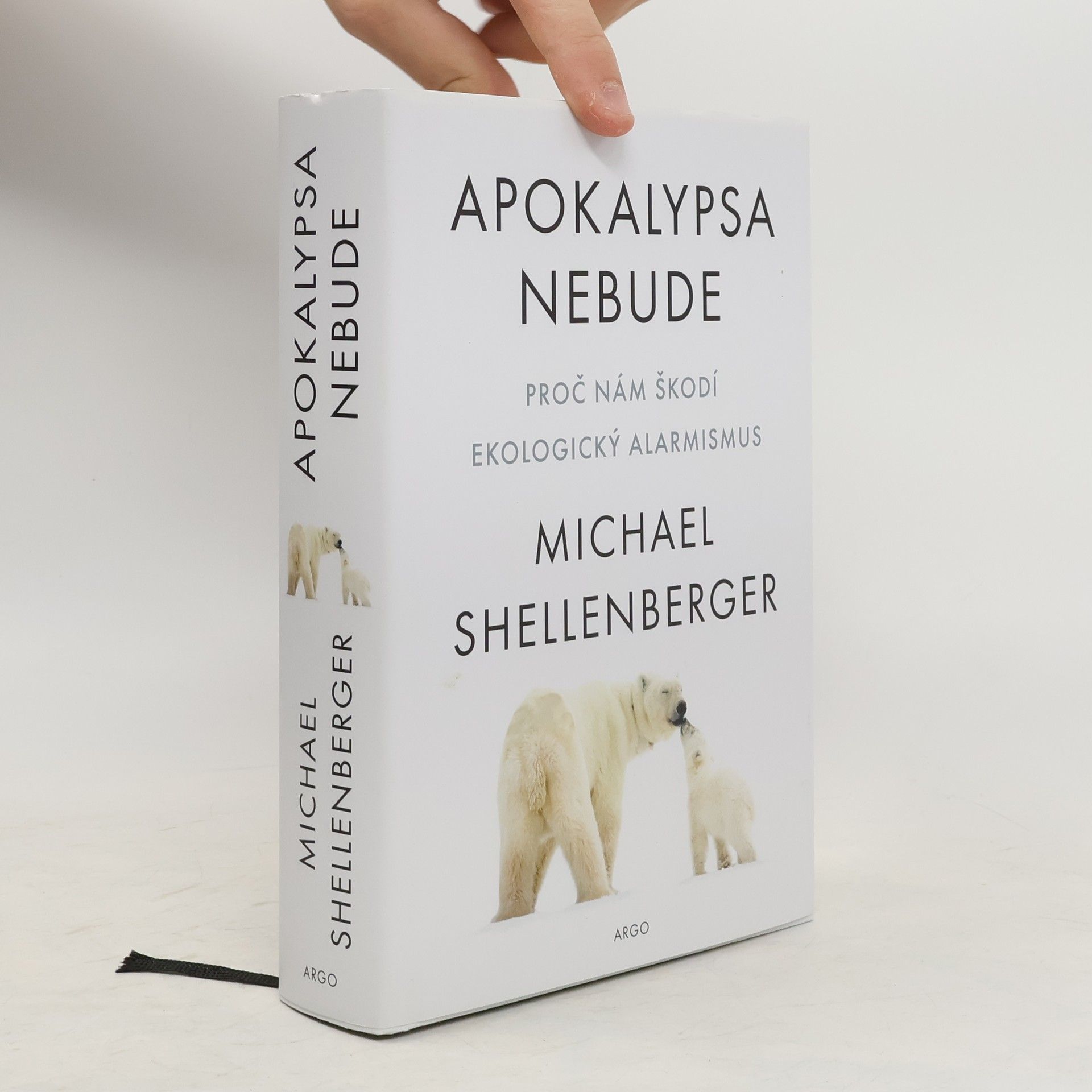„Der Klimawandel ist da, aber er führt nicht in die Apokalypse. Und er ist nicht einmal unser größtes Problem!“ In seinem aktuellen Bestseller „Apocalypse never“ zeigt sich der bekannte und international angesehene Umweltaktivist Michael Shellenberger als leidenschaftlicher Verfechter einer rationalen Umweltpolitik und erteilt dem Öko-Alarmismus eine klare Absage. Er legt dar, wie die vermeintlich alarmierenden Daten sachlich zu interpretieren sind und was wirklich hinter der Klimahysterie steckt: nämlich finanzielle Interessen, Machtstreben und die Sehnsucht nach einer Ersatz-Religion. Hierin sieht Shellenberger die eigentliche Gefahr für Mensch und Natur und fordert praktikable und innovative Lösungen jenseits ideologischer Tabus, darunter die Kernkraft als sichere und saubere Energiequelle. Dieses hervorragend recherchierte Buch räumt mit vielen Mythen auf und lässt die Fakten für sich sprechen. Aus dem Amerikanischen übersetzt von Pascale Mayer.
Michael Shellenberger Bücher







Apocalypse Never. Why Environmental Alarmism Hurts Us All
- 432 Seiten
- 16 Lesestunden
Climate change is a pressing issue, but it is not our most critical environmental challenge. Michael Shellenberger, a veteran environmental activist, has dedicated decades to promoting a greener planet, from saving unprotected redwoods to co-creating the precursor to the Green New Deal. He successfully advocated for the continued operation of nuclear plants, helping to prevent a surge in emissions. However, in 2019, amidst alarming claims that "billions of people are going to die," he felt compelled to clarify the distinction between science and fiction, especially for the sake of his teenage daughter and the rising anxiety among young people. Despite extensive media coverage, many remain unaware of key facts: carbon emissions have peaked and are declining in most developed nations, extreme weather-related deaths have dropped 90% in the last 40 years, and the likelihood of severe global warming is diminishing due to slowing population growth and abundant natural gas. Alarmists often resist practical solutions, raising questions about the motivations behind apocalyptic environmentalism. These include powerful financial interests, a quest for status, and a spiritual yearning for transcendence. While this impulse can be positive, the current narrative of fear and guilt fails to address our deeper psychological and existential needs.
National bestselling author of APOCALYPSE NEVER skewers progressives for the mishandling of America's faltering cities. Progressives claimed they knew how to solve homelessness, inequality, and crime. But in cities they control, progressives made those problems worse. Michael Shellenberger has lived in the San Francisco Bay Area for thirty years. During that time, he advocated for the decriminalization of drugs, affordable housing, and alternatives to jail and prison. But as homeless encampments spread, and overdose deaths skyrocketed, Shellenberger decided to take a closer look at the problem. What he discovered shocked him. The problems had grown worse not despite but because of progressive policies. San Francisco and other West Coast cities - Los Angeles, Seattle, Portland - had gone beyond merely tolerating homelessness, drug dealing, and crime to actively enabling them. San Fransicko reveals that the underlying problem isn't a lack of housing or money for social programs. The real problem is an ideology that designates some people, by identity or experience, as victims entitled to destructive behaviors. The result is an undermining of the values that make cities, and civilization itself, possible.
Apokalypsa nebude : proč nám škodí ekologický alarmismus
- 456 Seiten
- 16 Lesestunden
Změna klimatu je skutečná, ale neznamená konec světa. Dokonce to není ani ten největší současný problém životního prostředí. Přestože řadě témat se média věnují už desítky let, mnozí z nás stále neznají základní fakta. Emise oxidu uhličitého dosáhly vrcholu už před více než deseti lety a od té doby klesají. Úmrtí následkem extrémního počasí, dokonce i v rozvojových zemích, klesla za posledních čtyřicet let o osmdesát procent. Co se doopravdy skrývá za tímto vzestupem apokalyptického environmentalismu? Jsou to silné finanční zájmy. Je to touha po postavení a moci. Ale především je to nutkání určité skupiny údajných ateistů nalézt duchovní naplnění. Takový spirituální impuls může být přirozený a zdravý. Jenže pokud toto nové náboženství hlásá strach bez lásky a vinu bez vykoupení, nedokáže uspokojit naše nejhlubší psychologické a existenciální potřeby.
Environmentálna panika nám všetkým ubližuje. Keď sa v roku 2019 šírilo presvedčenie, že „miliardy ľudí zomrú“, čo prispelo k narastajúcej úzkosti naprieč všetkými generáciami, Schellenberger prehovoril. Ako celoživotný ekologický aktivista a popredný odborník na energetiku sa rozhodol, že je načase oddeliť vedu od fikcie. Schellenberger sa do hĺbky zaoberá environmentálnymi problémami, nepravdivými vyhláseniami vedcov a jednostrannými záujmami environmentálnych organizácií. Jeho vyjadrenia sú podložené príkladmi, presvedčivými argumentmi a faktami. Apokalypsa nehrozí môže byť najdôležitejšou knihou o životnom prostredí, aká kedy bola napísaná.
Musimy chronić naszą planetę, to nie ulega wątpliwości. Tylko jak? Niektóre odłamy ruchu ekologicznego zamknęły się w apokaliptycznej, eschatologicznej narracji, która nie dość, że jest antyludzka, jest też nienaukowa i kontrproduktywna. Michael Shellenberger proponuje konstruktywny enwironmentalizm – podejście polegające na trafnej identyfikacji problemów, z którymi się musimy zmierzyć, i poszukiwaniu sensownej odpowiedzi na pytanie, jak to zrobić.